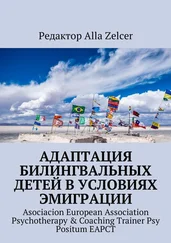James Walsh - Psychotherapy
Здесь есть возможность читать онлайн «James Walsh - Psychotherapy» — ознакомительный отрывок электронной книги совершенно бесплатно, а после прочтения отрывка купить полную версию. В некоторых случаях можно слушать аудио, скачать через торрент в формате fb2 и присутствует краткое содержание. Жанр: foreign_prose, psy_theraphy, foreign_edu, foreign_antique, на английском языке. Описание произведения, (предисловие) а так же отзывы посетителей доступны на портале библиотеки ЛибКат.
- Название:Psychotherapy
- Автор:
- Жанр:
- Год:неизвестен
- ISBN:нет данных
- Рейтинг книги:4 / 5. Голосов: 1
-
Избранное:Добавить в избранное
- Отзывы:
-
Ваша оценка:
- 80
- 1
- 2
- 3
- 4
- 5
Psychotherapy: краткое содержание, описание и аннотация
Предлагаем к чтению аннотацию, описание, краткое содержание или предисловие (зависит от того, что написал сам автор книги «Psychotherapy»). Если вы не нашли необходимую информацию о книге — напишите в комментариях, мы постараемся отыскать её.
Psychotherapy — читать онлайн ознакомительный отрывок
Ниже представлен текст книги, разбитый по страницам. Система сохранения места последней прочитанной страницы, позволяет с удобством читать онлайн бесплатно книгу «Psychotherapy», без необходимости каждый раз заново искать на чём Вы остановились. Поставьте закладку, и сможете в любой момент перейти на страницу, на которой закончили чтение.
Интервал:
Закладка:
Alcohol was frequently used in many other conditions of a similar nature, and above all in the septic conditions so common in hospitals before the days of antisepsis and asepsis. When it is recalled that amputations yielded a mortality from sepsis of at least one in four, the extensive use of alcohol in hospital practice two generations ago will be readily understood. We have changed that, however, and Sir Frederick Treves, at a meeting of the British Medical Association at Toronto, five years ago, called particular attention to the statistics of the use of alcohol in British hospitals. During the last forty years milk and alcohol have exactly changed places in the London hospitals. Between 1860 and 1870 about four times as much was spent for alcohol as for milk in these hospitals; during the last decade about four times as much was spent for milk as for alcohol.
A corresponding change has taken place in many other phases of treatment in which alcohol was commonly used. The physician of fifty years ago would have thought that one of his most efficient remedies had been taken from him if he could not use alcohol freely in tuberculosis. There are practically no well-known specialists in tuberculosis now who recommend the use of alcohol. On the contrary, most of them point out the dangers from its use and consider that the depression which follows even a moderate dose is likely to do much more harm than the temporary and fleeting stimulation which it gives can do good. In the treatment of phthisis in recent years milk has done much more than take the place of alcohol: it has displaced it entirely. The medical profession realizes now that what the consumptive needs is not more stimulation—for more of that than is good for him is forced upon him by the toxins of the disease—but more nutrition to enable him to resist the progress of the disease and raise his resistive vitality against its toxemia. The one stimulant that is of service in the affection is oxygen, and even that should be given in nature's dosage rather than by artificial means.
Alcohol in Pneumonia .—A corresponding change has taken place in the professional attitude towards the use of alcohol in pneumonia. There was a time not so very long ago when alcohol was considered the sheet anchor of our therapeutics for pneumonic conditions, especially those in which from the beginning a fatal termination seemed inevitable, because of the age of the patient or some complication. There were physicians who said that if they had to choose between all the drugs of the pharmacopeia on the one hand without whiskey and whiskey without all drugs whatsoever, for the treatment of pneumonia, they would make the latter choice. We are not as yet entirely away from the point of view that attributes a certain value to alcohol in pneumonia, though even those who still employ alcohol are less emphatic in their advocacy of it. Any one who has seen the result of the fresh air for pneumonia patients will think less and less of alcohol. One well-known clinical authority declares that the very best place to treat pneumonia in our cities would be beneath the trees in the parks. Our patients are being treated at the ends of wards with the windows up, on the balconies, and on the roofs, and the death rate is much reduced and the necessity for any other than oxygen stimulation seems much less.
Alcohol in Vague Affections .—The suggestive influence of the effect of alcohol is unconsciously obtained in a number of vague and rather chronic affections. Among these the most noteworthy are women's diseases. Various alcoholic home remedies, gin and whiskey, usually disguised by some bitter, used to be popular. But the known presence of alcohol in these discredited them. Then the nostrum vendors proceeded to supply something just as good. They were, in fact, the same things under another name. Many of the much-advertised remedies that are supposed to cure the ills the weaker sex is liable to, have been found to be little more than dilute whiskey, for in alcoholic strength they were about equal to whiskey diluted once with water, and the other substances were added only to disguise the taste and the odor of this principal ingredient. Many of these remedies have elicited innumerable flattering testimonials and not all of these were fraudulent or obtained by questionable means, but many of them were given because of results secured through the remedies. The alcohol gave the well-known sense of well-being, and the suggestive influence of this increased the appetite, tempted the patient to move around more, and to get more into the air than before, and the consequence was an improvement in the general health, in the midst of which many symptoms that seemed to the excited imaginations of run-down individuals to be serious were relieved. In a great many cases, however, the result was the formation of a whiskey habit; hence the crusade which has discredited these remedies.
Other patent medicines, and, indeed, some of the proprietary preparations, commonly recommended as nutrients and the like, and supposed to be ethical, are found to owe whatever efficiency they have to their alcoholic content. Here once more the suggestive elements were the more important, and enabled substances of little physical efficiency to produce effects that seemed to indicate the presence of powerful energizing materials.
Whiskey in Snake-Bites .—A typical example of a remedy which owes its efficacy to mental influence over the patient is the use of whiskey for snake-bites. It is generally recognized that whiskey is not only of no special beneficial effect for snake-bite, but that when taken in the large quantities usual in such cases it probably produces an ill effect by disturbing the patient's general condition and lowering his resistive vitality. I have no doubt, however, that its use in considerable quantities has in these cases proved of value because of the mental effect upon the patient. Ordinarily a snake-bite is followed by a sense of extreme terror and prostration that lowers the resistive vitality. This is overcome by the temporary stimulation of the alcohol. The generally accepted idea that whiskey is almost a specific remedy for snake-bite takes away from most people this dread and consequent depression, and does this especially at a time when the acuter symptoms of the venom are making themselves felt. Only about one in six even of those bitten by large rattlesnakes are likely to die. Many circumstances are in their favor. The bite is not likely to be fatal unless the full contents of the poison sac is injected—which will not be done if the sac has been emptied in the preceding twenty-four hours—and if there are any obstacles, such as clothing or even hair, on the part struck by the snake. Most people, however, would almost die from fright, and such a thing is quite possible, if they thought there was no remedy. The fact that they understand that alcohol is an almost infallible remedy gives them courage, and as soon as they receive some whiskey and it begins to take effect this intense depression is relieved.
It would be better if the knowledge we now have as to snake-bites were more generally used, and if people understood that only rarely is such an accident fatal. In this way there would be no necessity for an appeal to mental influence through whiskey. It is probable, however, that alcohol will still be used for many years, at least in the country districts, because the supposed knowledge is too widely diffused for a correction to come soon, and then other modes of treatment have not that persuasive mental influence which whiskey has as the result of the long tradition. There are many other popular remedies for snake-bite not quite so inefficient as whiskey, but that will continue to enjoy a reputation and really have a certain efficacious result as a consequence of the expectant attitude evoked by the fact that for as long as the patient has heard anything about these things this particular remedy has been mentioned always as the one thing sure to do good.
Читать дальшеИнтервал:
Закладка:
Похожие книги на «Psychotherapy»
Представляем Вашему вниманию похожие книги на «Psychotherapy» списком для выбора. Мы отобрали схожую по названию и смыслу литературу в надежде предоставить читателям больше вариантов отыскать новые, интересные, ещё непрочитанные произведения.
Обсуждение, отзывы о книге «Psychotherapy» и просто собственные мнения читателей. Оставьте ваши комментарии, напишите, что Вы думаете о произведении, его смысле или главных героях. Укажите что конкретно понравилось, а что нет, и почему Вы так считаете.












